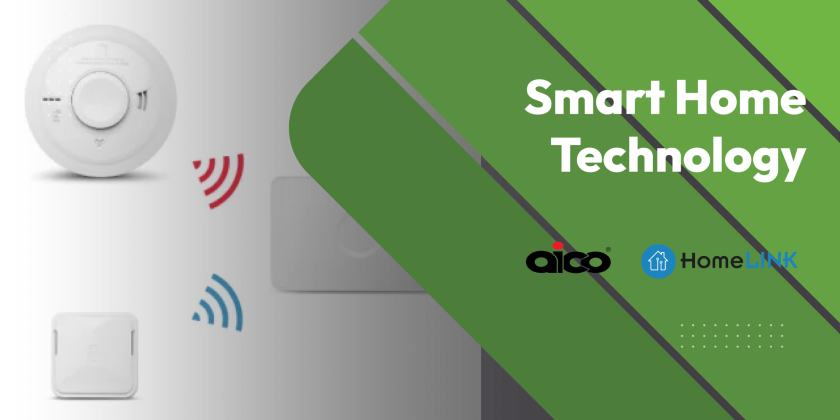Choosing the right solar panel installer is a crucial step in transitioning your home to renewable energy. With the growing popularity of solar power, the market is flooded with numerous installers, each promising the best service and products. However, knowing how to choose a solar panel installer that fits your needs requires a bit of research and understanding. This practical guide will walk you through the essential factors to consider, from verifying credentials to understanding warranties, to ensure you make an informed decision. By the end, you’ll feel confident in selecting a reliable installer who will help you harness the power of the sun effectively.
Understanding Solar Panel Installation
Basics of Solar Panel Systems
Solar panel systems are comprised of several key components that work together to convert sunlight into electricity. The primary component is the solar panel itself, made up of photovoltaic (PV) cells that capture sunlight and convert it into direct current (DC) electricity. This electricity is then directed to an inverter, which transforms DC into alternating current (AC), the form of electricity required to power household appliances.
Additionally, a solar panel system includes mounting equipment that holds the panels in place, typically on the roof, and a battery storage solution, if off-grid functionality is desired. Monitoring systems are also often included to track energy production and usage. Understanding these components is essential when considering how to choose a solar panel installer, as different systems and products may vary in efficiency, cost, and compatibility with your home’s energy needs.
Benefits of Going Solar
Going solar offers a multitude of benefits that extend beyond just reducing your electricity bills. One of the most significant advantages is the positive environmental impact, as solar energy is a clean, renewable resource that reduces carbon emissions and reliance on fossil fuels. Financially, homeowners can take advantage of government incentives and schemes, such as feed-in tariffs, which can further offset installation costs and improve return on investment.
Additionally, solar panels can increase the value of your property. Homes equipped with solar energy systems are often more attractive to buyers, given the promise of reduced energy costs. Furthermore, solar panels require minimal maintenance, offering a long-term, hassle-free energy solution. With energy prices continually rising, generating your own electricity can provide a sense of security and independence. Understanding these benefits is crucial when considering how to choose a solar panel installer, ensuring you partner with someone who maximises these advantages.
Common Myths Debunked
Despite the growing popularity of solar energy, several myths persist that may deter homeowners from making the switch. One common misconception is that solar panels only work in sunny climates. In reality, solar panels can generate electricity even on cloudy days, as they rely on light, not heat. Another myth is that solar panels are too expensive and not cost-effective. While the initial investment can be significant, the long-term savings on energy bills and available incentives often lead to a worthwhile return on investment.
Some people believe that solar panels require constant maintenance. However, they are designed to be low-maintenance, with most systems needing only periodic cleaning and inspections. Additionally, concerns about aesthetics have diminished as modern panels are sleeker and can be integrated seamlessly into roof designs. By debunking these myths, homeowners can make more informed decisions about how to choose a solar panel installer that aligns with their needs and expectations.
How to Choose a Solar Panel Installer
Key Qualities to Look For
When considering how to choose a solar panel installer, several key qualities should be prioritised to ensure a successful installation. First and foremost, look for installers with a solid track record and extensive experience in the industry. A company that has been operating for several years is more likely to provide reliable service and have a portfolio of successful installations.
Accreditation is another crucial factor. Ensure the installer is accredited by relevant industry bodies, such as the Microgeneration Certification Scheme (MCS) in the UK. This guarantees that the installer follows industry standards and best practices. Additionally, check for positive customer reviews and testimonials, which can provide insights into the company’s reputation and customer service.
Transparency in pricing and contracts is also essential. A reputable installer will offer clear explanations of costs and provide detailed proposals. Lastly, consider the quality of the solar products they offer, ensuring they use reputable and high-efficiency panels and inverters.
Questions to Ask Potential Installers
When deciding how to choose a solar panel installer, asking the right questions can provide crucial insights into their capabilities and reliability. Begin by inquiring about their experience and the number of installations they have completed. This will help gauge their expertise and familiarity with various types of systems.
Ask about the warranties and guarantees provided. A reputable installer should offer substantial warranties on both the equipment and their workmanship, ensuring peace of mind in case of future issues. It’s also important to understand their process: request a detailed explanation of the installation timeline, what it involves, and any potential disruptions to your daily routine.
Inquire about the brands and types of solar panels and inverters they use. Quality components are essential for an efficient and durable system. Finally, ask about any available financing options or government incentives that could offset costs. These questions will help you navigate how to choose a solar panel installer that best meets your needs.
Checking Credentials and Reviews
Verifying credentials and reviews is a critical step in determining how to choose a solar panel installer. Start by confirming that the installer is accredited by recognised bodies such as the Microgeneration Certification Scheme (MCS) in the UK, which ensures adherence to industry standards. Accreditation is an indicator of professionalism and technical competence.
Examining customer reviews and testimonials is also essential. Look for feedback on independent review platforms to gain unbiased insights into previous customers’ experiences. Pay attention to recurring themes, whether positive or negative, as they often reflect consistent aspects of the installer’s service.
It’s also worthwhile to ask the installer for references. Speaking directly to past clients can provide additional clarity on the installer’s reliability, communication, and quality of work. Furthermore, consider checking with local consumer protection agencies for any complaints or disputes. Thoroughly checking credentials and reviews helps ensure you partner with a trustworthy professional, making the process of how to choose a solar panel installer more straightforward and secure.
Comparing Installation Quotes
Understanding Cost Breakdown
When comparing installation quotes, understanding the cost breakdown is essential to ensure you are making an informed decision. A comprehensive quote should detail all aspects of the installation, not just the total price. Begin by examining the costs for the solar panels and inverters, which can vary widely depending on the brand and efficiency.
Next, consider the labour costs, which should include installation, electrical work, and any necessary structural modifications. Some quotes may also factor in the cost of permits and inspections, so it’s important to clarify if these are included or additional.
Look for any recurring charges, such as maintenance agreements or monitoring services, which can affect long-term costs. Additionally, be aware of any hidden fees or contingencies that could arise during the installation process. By thoroughly understanding the cost breakdown, you can more accurately compare quotes and decide how to choose a solar panel installer who offers the best value for your investment.
Evaluating Warranty and Maintenance
When comparing solar installation quotes, evaluating warranty and maintenance terms is crucial for ensuring long-term system performance. A robust warranty can be a significant indicator of an installer’s confidence in their products and workmanship. Typically, a solar panel warranty should cover both the performance and the physical integrity of the panels, often spanning 25 years for performance and 10-15 years for product warranty.
In addition to the panels, ensure the inverter warranty is comprehensive, as inverters may require replacement more frequently than panels. A workmanship warranty, covering installation quality, is also vital and should last at least 5-10 years.
Moreover, consider the maintenance services offered. Some installers provide periodic inspections and cleaning as part of their package, which can be a valuable addition. Understanding these aspects helps you make a more informed choice in how to choose a solar panel installer, ensuring your investment is protected and your system remains efficient over time.
Choosing the Best Value
Selecting the best value when comparing solar installation quotes goes beyond simply choosing the lowest price. It’s essential to weigh the cost against the quality and reliability of the components and services offered. Begin by assessing the quality of the solar panels and inverters included in the quote. High-efficiency products from reputable brands may have a higher upfront cost but provide better performance and durability.
Consider the installer’s reputation and customer service. An installer with a solid track record and positive reviews may offer greater peace of mind, even if their quote is slightly higher. Evaluate the warranty terms critically, as generous warranties can save costs on repairs or replacements in the future.
Additionally, factor in any included maintenance services and their potential to enhance system longevity and efficiency. By considering these elements, you can determine how to choose a solar panel installer who offers the best balance of cost, quality, and long-term benefits.
Preparing Your Home for Solar
Assessing Roof Suitability
Before proceeding with solar panel installation, it’s crucial to assess your roof’s suitability. The roof’s orientation and angle are key factors, as ideally, solar panels should face south in the UK to maximise sun exposure. An angle between 30 to 40 degrees is generally optimal for capturing sunlight effectively.
The roof’s condition is another important consideration. It should be structurally sound to support the weight of the panels and withstand installation. If the roof is nearing the end of its lifespan, it might be wise to replace it before installing solar panels to avoid future disassembly.
Also, observe any potential shading from trees, nearby buildings, or chimneys, as these can significantly reduce the efficiency of the solar panels. Conducting a thorough assessment with a professional can help identify any issues and determine necessary adjustments. Understanding roof suitability is an essential step when considering how to choose a solar panel installer, ensuring the panels perform optimally once installed.
Navigating Planning Permissions
Navigating planning permissions is a critical step in preparing your home for solar panel installation. In the UK,
Optimising Energy Efficiency
Before installing solar panels, optimising your home’s energy efficiency can enhance the overall benefits and savings you’ll achieve. Start by conducting an energy audit to identify areas where energy is being wasted. This could include poor insulation, outdated windows, or inefficient appliances. Addressing these issues can reduce your overall energy consumption, allowing you to rely more on solar energy and potentially reduce the size of the solar panel system needed.
Consider upgrading to energy-efficient appliances and LED lighting, which consume less power. Implementing smart home technologies, such as programmable thermostats, can also help manage energy usage more effectively. Additionally, ensure your home is well-insulated to prevent heat loss, reducing the need for excessive heating.
By optimising energy efficiency, you not only decrease your carbon footprint but also maximise the financial returns from your solar panel investment. This proactive approach complements the decision-making process of how to choose a solar panel installer by ensuring your home is ready to harness solar power efficiently.
Ensuring Long-term Solar Success
Monitoring Performance Post-Installation
Monitoring the performance of your solar panel system post-installation is crucial for ensuring long-term success and maximising energy output. Once your system is up and running, utilise a monitoring system to track energy production. This allows you to observe how much electricity your panels generate and compare it with your consumption patterns.
Most modern solar systems include user-friendly monitoring apps that provide real-time data and performance analytics. These tools can alert you to any drops in production, which could indicate maintenance needs or technical issues. By regularly reviewing this data, you can quickly address any problems, ensuring your system operates efficiently.
Additionally, monitoring your system’s performance can help verify that you’re achieving expected savings on your energy bills and that your investment is on track to pay off. Keeping a close eye on your solar panel system post-installation is an essential step in sustaining its efficiency and prolonging its lifespan.
Maintaining and Cleaning Panels
Regular maintenance and cleaning of solar panels are vital for ensuring they operate at maximum efficiency over the long term. Although solar panels generally require minimal maintenance, keeping them free from dirt, dust, and debris is essential. Accumulated grime can obstruct sunlight, reducing the panels’ ability to generate electricity effectively.
Begin by visually inspecting your panels every few months for any noticeable dirt or obstructions. If cleaning is necessary, use a soft brush or sponge with water to gently remove grime. Avoid using abrasive materials or harsh chemicals that could damage the panels.
In addition to self-cleaning, consider scheduling periodic professional maintenance checks. These can help identify any potential issues with wiring, mounting, or performance that you might overlook. By maintaining a regular cleaning and maintenance schedule, you ensure your solar panels deliver optimal performance, thereby safeguarding your investment and contributing to the long-term success of your solar energy system.
Planning for Future Energy Needs
Planning for future energy needs is a key aspect of ensuring long-term success with your solar panel system. As your household grows or your lifestyle changes, your energy consumption may increase. To accommodate this, consider the scalability of your solar system when initially choosing your installation. Opt for a system with the capacity to add more panels if necessary.
Stay informed about advancements in solar technology and battery storage solutions. Incorporating energy storage can enhance your ability to use solar power during periods when sunlight is unavailable, increasing your system’s overall efficiency and independence from the grid.
Additionally, consider how changes in energy efficiency in your home, such as new energy-saving appliances or smart home systems, can impact your energy requirements. By anticipating future energy needs and planning accordingly, you can ensure your solar panel system remains effective and aligned with your lifestyle, providing continued savings and environmental benefits over the years.


